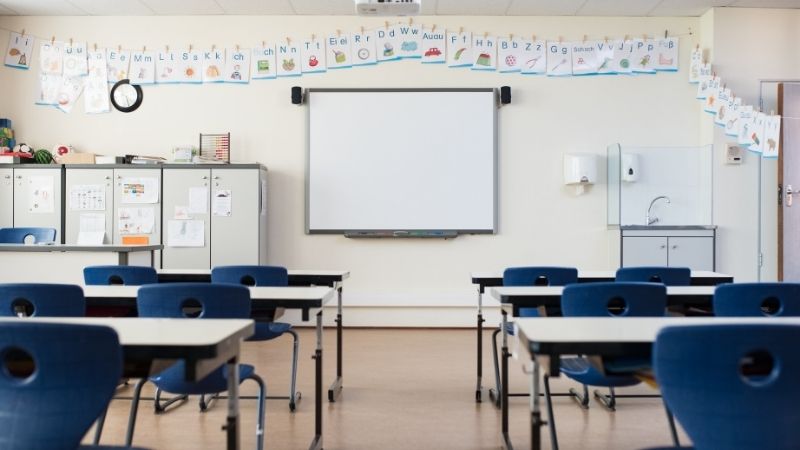
Unlocking the power of early childhood education is akin to opening a door that leads to endless possibilities. This article aims to explore the importance of early childhood education, focusing on preschool activities, developmental milestones, play-based learning, kindergarten readiness, and aspects of child pedagogy.
By delving into these areas, readers will gain a comprehensive understanding of how early childhood education can have a profound impact on children's growth and development.
Through an objective and informative approach, this article seeks to empower individuals seeking knowledge in this field.
Key Takeaways
- Early childhood education promotes cognitive, social, and emotional development in young children.
- Developmental milestones are crucial in assessing a child's progress and tailoring instruction to meet their specific needs.
- Play-based learning fosters creativity, problem-solving skills, and social development in children.
- Early childhood education plays a crucial role in preparing children for kindergarten and lays a strong foundation for continued academic success.
The Impact of Preschool Activities on Early Childhood Education
Preschool activities have a significant impact on early childhood education by promoting cognitive, social, and emotional development in young children.
Social interaction plays a crucial role in these activities as it allows children to learn how to communicate, cooperate, and develop relationships with their peers. Through group games, collaborative projects, and free play, children acquire important social skills that are essential for successful interactions later in life.
Additionally, hands-on learning is heavily emphasized in early childhood education as it enhances the child's ability to explore and understand the world around them. By engaging in activities such as sensory play or building blocks, children actively participate in their own learning process and develop problem-solving skills.
This method of learning fosters creativity and critical thinking abilities that will benefit them throughout their educational journey.

Recognizing Developmental Milestones in Early Childhood Education
Understanding and identifying key developmental milestones is crucial in early childhood education. Recognizing developmental milestones allows educators to assess a child's progress and tailor instruction to meet their specific needs. Early intervention plays a vital role in addressing any delays or challenges that may arise during this critical period of development. By recognizing developmental milestones, educators can provide timely support and interventions to maximize a child's potential.
Recognizing these milestones also helps educators identify any potential red flags or areas where further assessment may be needed. This enables them to collaborate with other professionals, such as speech therapists or occupational therapists, for additional support if necessary.
Early intervention has been shown to have long-lasting positive effects on children's academic, social, and emotional development. It empowers both educators and parents by providing them with the knowledge and tools needed to address any concerns promptly.
The Power of Play-Based Learning in Early Childhood Education
Play-based learning has been shown to foster creativity, problem-solving skills, and social development in young children. Research has consistently demonstrated the numerous benefits of play-based learning in early childhood education.
Through play, children engage in hands-on activities that stimulate their imagination and allow them to explore different concepts and ideas. This type of learning encourages children to think critically, solve problems, and make decisions independently.
Additionally, play-based learning promotes social development by providing opportunities for children to interact with their peers and develop important communication and collaboration skills.
Teachers play a crucial role in promoting play-based learning by creating a supportive environment that encourages exploration and discovery. They can provide guidance, facilitate discussions, and offer materials that promote open-ended play experiences.

Ensuring Kindergarten Readiness Through Early Childhood Education
Research has shown that early childhood education plays a crucial role in preparing children for kindergarten. Early education programs are designed to ensure kindergarten readiness by providing young children with the necessary skills and knowledge needed for a successful transition to formal schooling. These programs focus on various areas of child development, including cognitive, social, emotional, and physical domains.
Through engaging activities and age-appropriate curriculum, children develop important skills such as language proficiency, pre-reading and pre-math skills, problem-solving abilities, self-regulation, and social interaction skills. Additionally, early education programs promote a love for learning and help foster a positive attitude towards school. By addressing the specific needs of each child in their formative years, these programs lay a strong foundation for continued academic success.
Understanding the key aspects of child pedagogy in early childhood education is essential to effectively support children's growth during this critical period of development.
Understanding the Key Aspects of Child Pedagogy in Early Childhood Education
An examination of the foundational principles and instructional strategies employed in early childhood education sheds light on effective approaches to support children's learning and development during their formative years.
A child-centered approach is crucial in this context, as it focuses on the unique needs, interests, and abilities of each child. By understanding the key aspects of child pedagogy, educators can create a nurturing environment that fosters optimal growth and learning outcomes.
Effective teaching techniques play a vital role in this process, such as scaffolding, which involves providing support and guidance to children as they tackle challenging tasks. Another effective technique is promoting active engagement through hands-on activities and play-based learning experiences.
These strategies facilitate holistic development by encouraging children to explore, inquire, problem-solve, and collaborate with their peers.

Frequently Asked Questions
What Are Some Examples of Preschool Activities That Can Enhance Early Childhood Education?
Preschool activities play a crucial role in enhancing early childhood education. They promote the attainment of developmental milestones through play-based learning, which fosters kindergarten readiness. Child pedagogy emphasizes the importance of age-appropriate and engaging activities for optimal educational outcomes.
How Can Parents and Caregivers Recognize and Track Their Child's Developmental Milestones?
Recognizing developmental milestones is crucial for parents and caregivers to track their child's progress. Regular observation and consultation with professionals can help identify delays or concerns early on, ensuring appropriate interventions and support for optimal development.
What Are the Benefits of Play-Based Learning in Early Childhood Education?
Play-based learning in early childhood education has numerous benefits. It promotes holistic development by fostering cognitive, social, emotional, and physical skills. Parents and caregivers play a crucial role in supporting play-based learning at home through providing a conducive environment and engaging in interactive activities.
How Can Early Childhood Education Programs Ensure That Children Are Prepared for Kindergarten?
Early childhood education programs can ensure kindergarten preparation by incorporating a comprehensive curriculum that focuses on the development of essential skills and knowledge. This includes activities that promote social, cognitive, and physical development, as well as play-based learning approaches to foster holistic growth.
What Are the Key Aspects of Child Pedagogy That Educators Should Consider in Early Childhood Education?
Child pedagogy in early childhood education involves utilizing a child-centered approach and effective teaching methods. It focuses on creating a nurturing and supportive environment that promotes holistic development, encourages active engagement through play-based learning, and ensures kindergarten readiness by addressing developmental milestones.
 Careers in EducationElementary EducationHigh School EducationEducational TechnologyTeaching StrategiesSpecial EducationPrivacy PolicyTerms And Conditions
Careers in EducationElementary EducationHigh School EducationEducational TechnologyTeaching StrategiesSpecial EducationPrivacy PolicyTerms And Conditions
